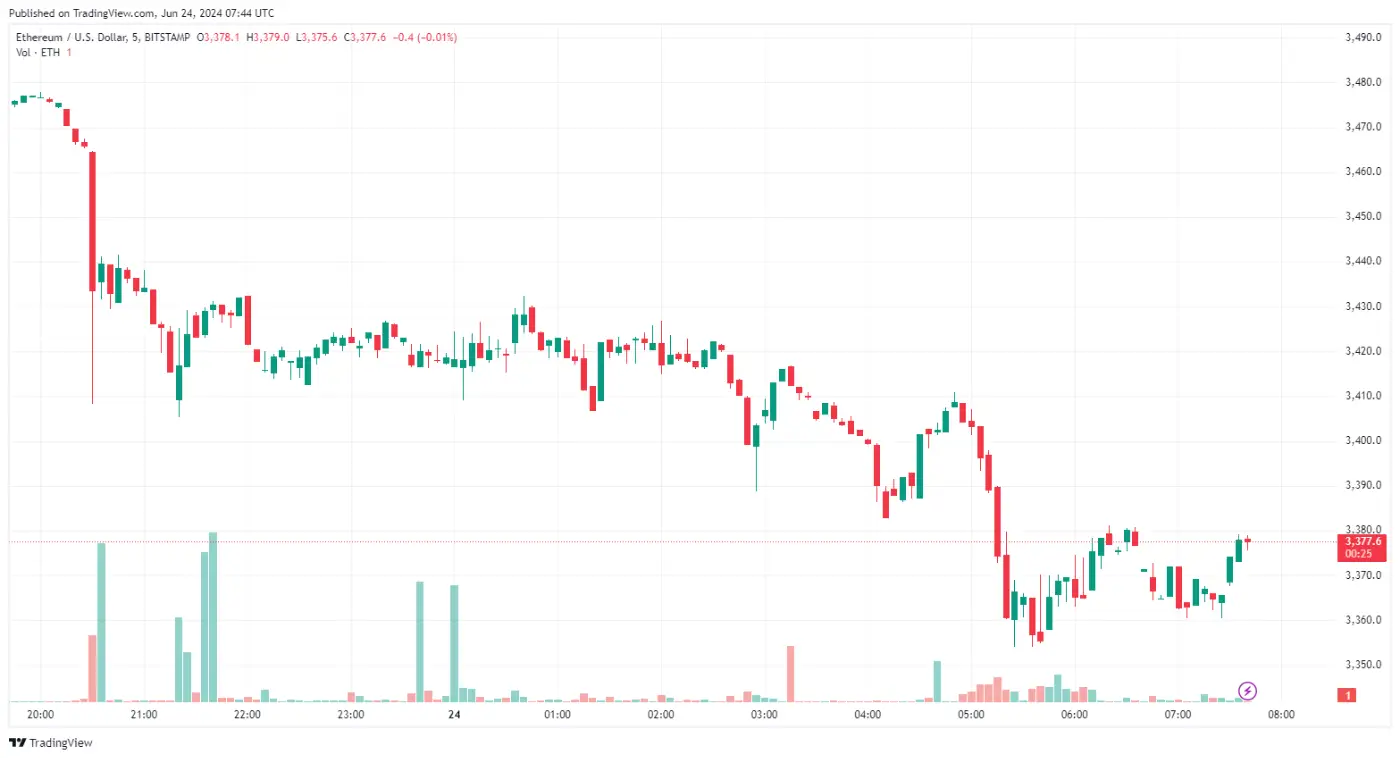Crypto market analyst Andrew Kang has predicted that Ether could drop to the $2,400-$3,000 price level following the launch of spot ETH exchange-traded funds (ETFs).
Ether has been among the worst-hit tokens in the recent bloodbath across the broader cryptocurrency market.
The largest altcoin is down 4% in the last 24 hours to trade at $3,367 at 02:50 a.m. EST.

ETH will Plunge To $2,400
In an X post, Kang noted that the hype around the launch of spot ETH ETFs has already been priced in.
Analysts anticipate that the US Securities and Exchange Commission (SEC) will approve spot ETH ETFs on July 2 before the ETFs start trading on July 3.
The price of ETH witnessed a slight gain after the approval of 19b-4 forms in late May, but the same might not be seen this time.
In an X post, Kang noted that the largest altcoin will trade in the $3,000 to $3,800 zone before ETH ETFs go live. The price could drop to $3,000 or even $2,400 once the ETFs start trading.
However, this price action does not hinder the potential of Ether hitting a fresh all-time high soon.
Kang noted that ETH’s price performance will largely depend on Bitcoin. If BTC rallies towards $100,000 later this year, ETH will start a run to an all-time high.
Kang noted,
Does that mean ETH will go to zero? Of course not. At some price, it will be considered good value, and when BTC goes up in the future, it will be dragged up with it to some extent.
Dynamics Between Bitcoin and Spot ETH ETFs are Different
In the lengthy article on X, Kang also pointed out the glaring differences between spot Bitcoin and Ether ETFs.
He noted that Bitcoin as an asset class had achieved global validation, unlike Ethereum. In 2021, BTC climbed to $69,000, even without the ETF hype, due to a growing number of market participants and institutional adoption.
Kang also noted that demand for BTC remained notably high. Bitcoin ETFs custody around 6% of the Bitcoin supply. Additionally, institutions such as MicroStrategy and Tether continue to purchase.
Ethereum has yet to see such an intake by institutions. Instead, many traditional firms view the Ethereum ecosystem as a technological breakthrough that has no direct impact on price.
Moreover, the approval of these ETFs came as a surprise, with issuers needing more time to pitch the product to large investors.
Furthermore, some investors might prefer to hold ETH in yield farming or staking programs than invest in ETFs.
Additionally, Ethereum’s Open Interest sits at $15 billion, according to Coinglass.
With the OI at near record highs, it signals speculative trading and a lack of market confidence that Ether ETFs will have the same success as Bitcoin ETFs.










